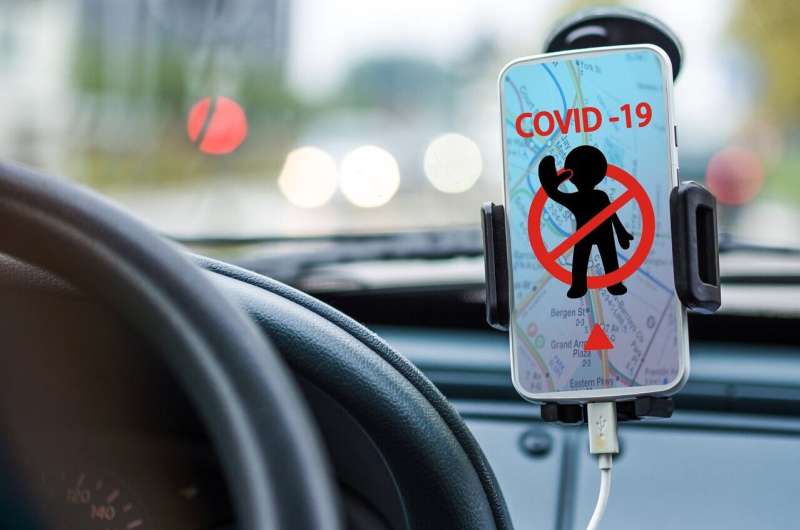
A leading ecologist from the University of St Andrews is calling for coordinated action to investigate the environmental impacts of the COVID-19 Pandemic.
A drastic global reduction in human mobility was caused by COVID-19 lockdowns. A surge in travel activity beyond pre-pandemic levels seems imminent as restrictions are gradually being lifted.
In an article published in the journal Nature Reviews Earth and Environment, Professor Christian Rutz, from the School of Biology at the University of St Andrews, explains how the COVID-19 pandemic afforded opportunities to study the impact on the natural world. He believes that measuring the effects of pauses andpulses in human mobility on wild animals and their environments will help plan for a more sustainable future.
The term "anthropause" was previously used by Rutz's team to describe the period of unusual planetary calm caused by early COVID-19 lockdowns. The word quickly found its way into everyday language usage and inspired many research projects investigating how nature responded when half of the world's human population were at home.
The COVID-19 Bio-Logging Initiative is one of the projects. This international research consortium, which Rutz helped launch in May 2020, investigates wildlife movements before, during and after COVID-19 lockdowns using data collected with tiny animal-attached electronic devices. The team has amassed more than one billion gps location records for some 13,000 tagged animals from all around the world, including birds, mammals and a variety of marine species.
As the world slowly emerges from this devastating Pandemic, we may see a reversal of earlier lockdown effects. People want to make up for lost time, and are planning to see friends and family, as well as catch up with work commitments.
Scientists are preparing to document the environmental impacts of a post-pandemic anthropulse.
The Pandemic caused endless suffering but, as a scientist, we must not miss the opportunity to assess the environmental consequences of these pauses.
There are important lessons we can learn from Rutz and Dr. Marlee Tucker's work on animal tracking and environmental planning. We are looking for innovative ways to mitigate adverse environmental impacts.
The scientists want to understand how different aspects of human activity affect the natural world. The hope is that this period of crisis will allow humanity to identify a path towards a sustainable future.
More information: Studying pauses and pulses in human mobility and their environmental impacts, Nature Reviews Earth and Environment (2022). DOI: 10.1038/s43017-022-00276-x Citation: Scientists prepare for 'anthropulse' as COVID-19 travel restrictions ease (2022, March 15) retrieved 15 March 2022 from https://phys.org/news/2022-03-scientists-anthropulse-covid-restrictions-ease.html This document is subject to copyright. Apart from any fair dealing for the purpose of private study or research, no part may be reproduced without the written permission. The content is provided for information purposes only.